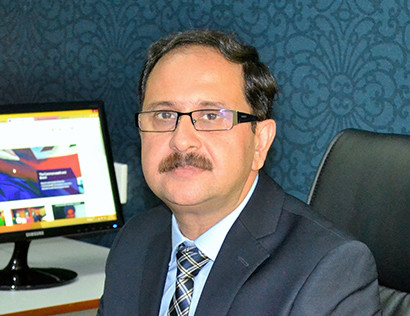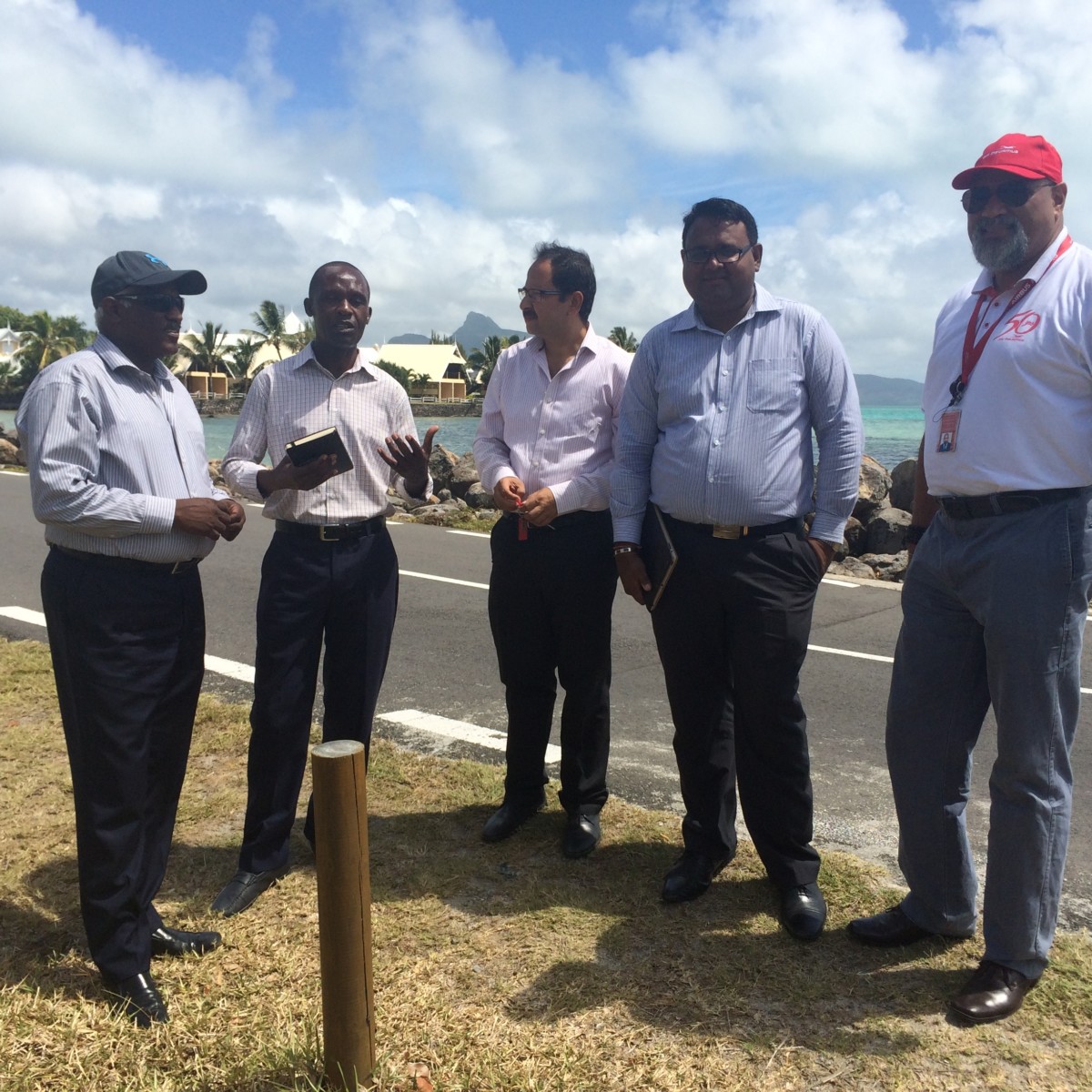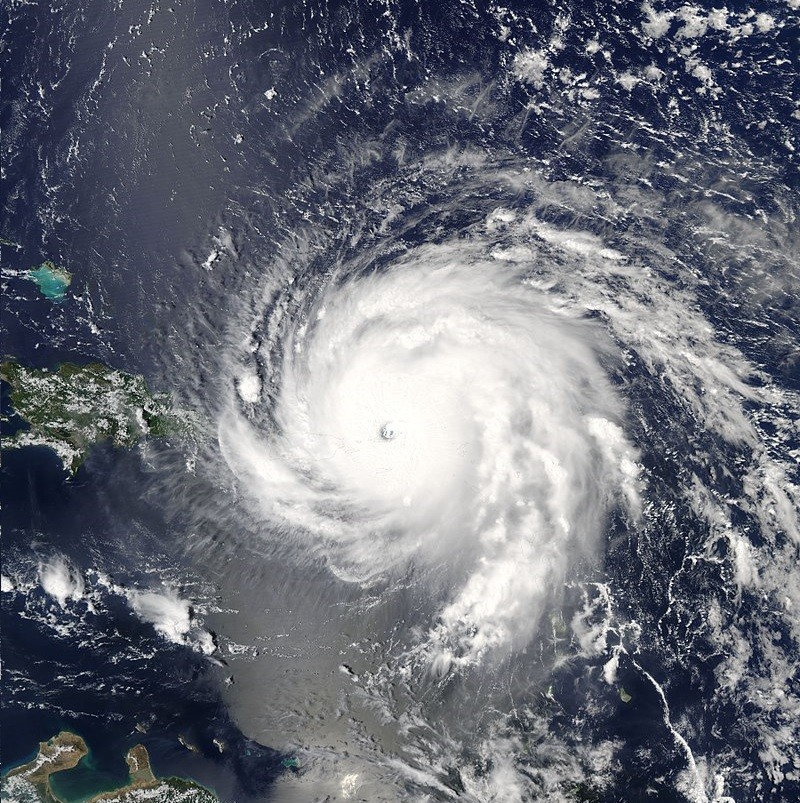No doubt you’ve heard of Irma, Maria and Matthew, and the destruction those hurricanes wreaked. Now a man named Bilal Anwar is helping Commonwealth countries fight the effects of such storms. Mr Anwar manages our new Commonwealth Finance Access Hub (CFAH), which we set up in Mauritius in 2016. The CFAH is our response to the ongoing and future threats of climate change to our member countries. The hub’s primary aim is to help small and vulnerable countries access international sources of climate finance. This funding helps them adapt to climate change, mitigate its effects and realise their sustainable development goals.

Mr Anwar says:
“I consider myself a climate policy practitioner who passionately believes in the criticality of climate change as one of the gravest threats to human civilisation. I also believe the most viable approach to addressing this issue is through global collaboration that ensures everyone plays a role.”
Mr Anwar had been a climate change expert for 16 years when he took on the role of managing our CFAH. He began his career with the United Nations Framework Convention on Climate Change Secretariat in Bonn, Germany, back in 2000. He was part of the team that supported the initial inter-governmental negotiations of Clean Development Mechanism (CDM) and subsequently worked on its implementation for a decade.
The CDM paved the way for the development of thousands of carbon reduction and sustainable development projects globally and the emergence of the global carbon market. During this period, he was deeply involved in developing the regulatory system of the CDM. He also led the CDM capacity-building programme and developed its accreditation mechanism.
About CFAH, Mr Anwar says:
“I envision the Hub evolving into an entity that offers its services through an expanded network, which facilitates cooperation between developing members to build their capacity to access international sources of climate finance. To do so, the Hub will help countries create bespoke national projects and programmes which are eligible for climate finance.”
The idea of the hub took shape at the CHOGM 2013. Following their mandate to develop it, we carried out in-depth consultation with 40 member countries. This was to make sure that the hub would be relevant to their needs and complement other climate finance initiatives. CHOGM 2015 then gave the go-ahead, and the Government of Australia pledged AU$1 million to support the initial implementation of the hub.
The Government of Australia pledged AU$1 million to support the initial implementation of the hub
At its launch in November 2015, Sir Anerood Jugnauth, Prime Minister of Mauritius, acknowledged its importance:
“The flow of international climate funds for Small Island Developing States and Least Developed States, which are the most vulnerable to climate change, has remained problematic. The Hub will assist in unlocking existing and new climate funds for urgent adaptation and mitigation.”
In 2016/17 the central hub was up and running successfully in Mauritius. It now functions as a gateway for regional and national support. It also facilitates south-south sharing of skills, knowledge and expertise. It has deployed climate finance advisers in partnerships in the Caribbean, the Pacific and Indian Ocean. They serve as “spokes” to the hub. In addition, we have positioned six national advisers. We will send out others when members request them for long-term support in their countries. We have also set up an online platform to make communication easy between the central hub in Mauritius, the national advisers and the Secretariat.
The hub has already had requests for help from 16 Commonwealth members – seven in the Caribbean, four in the Pacific and five in the African Region – accounting for over half of the Commonwealth small state members. To meet this high level of demand for assistance, the hub needs more funding. The mobilisation of additional resources is key to sustaining the hub’s delivery.
The hub will assist in unlocking existing and new climate funds for urgent adaptation and mitigation.
— Sir Anerood Jugnauth, Prime Minister, Mauritius
Looking to the future, Mr Anwar says:
“I foresee the Hub becoming recognised as one of the leading intermediary entities of the world in facilitating access to climate finance. My vision is also for it to act as an extended arm of leading climate finance institutions, such as the Green Climate Fund, supporting their objectives.”
Fighting climate change globally
In 2015-2017, the Commonwealth participated in the following climate change conferences:
- At COP23 in Bonn, 2017, we launched a new online resource – the Law and Climate Change Toolkit. It is aimed at government policy-makers responsible for developing laws that help implement the Paris Agreement.
- At COP22 in Marrakech, 2016, we reaffirmed our support to small states and vulnerable developing countries which face a daunting task in adapting to climate impacts, from desertification to rising seas. Following the Paris Agreement on Climate Change the year before, Commonwealth Secretary-General Patricia Scotland asserted that “our priority is to move from agreement to action”.
- At COP21 in Paris, 2015, Commonwealth leaders committed to limiting global warming at climate negotiations. They agreed to “practical and swift action” by all governments and other public and private stakeholders to reinforce the outcome agreement. Afterwards, Patricia Espinosa, Executive Secretary of the United Nations Framework Convention on Climate Change (UNFCCC), credited CHOGM 2015 for helping to make the Paris Agreement possible. She also credited the Secretariat as a leading partner in delivering the Agreement.


